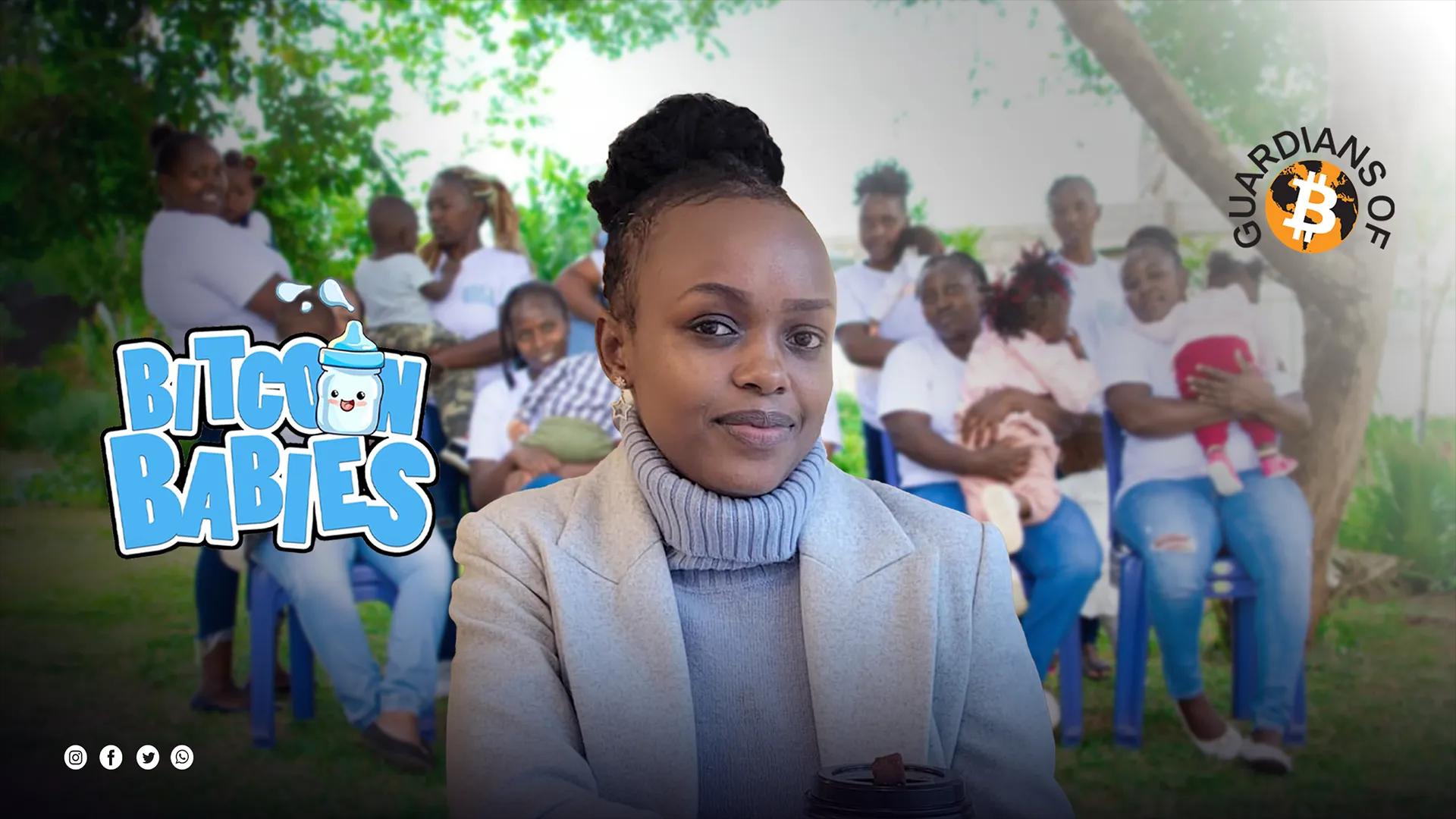How Bitcoin Babies is changing lives in Kenya
'It really surprises me men still feel women shouldn’t handle money,' says founder Naomi Wambui on gender barriers

For many in Kenya, the word “Bitcoin” means scam. But Bitcoin Babies is rewriting that perception by turning digital currency into baby formula, doctor visits, and financial independence.
Now based in the Netherlands, founder Naomi Wambui manages the initiative remotely with the help of local staff on the ground. From abroad, she also follows the challenges of perception at home. “Most people, when you say cryptocurrency, they think this is a Ponzi scheme where you have to invest money, and it grows very quickly,” she told The Crypto Radio.
“Bitcoin Babies is about showing that it can be used for real things – feeding your kids, getting healthcare, supporting mothers.”
From motherhood to movement
The idea began with Wambui’s own experience. When she became a mother in 2023, she received dedicated support in the Netherlands, including a midwife who guided her through complications in her first trimester. That level of care, she realized, was out of reach for many women in Kenya.
“I really thought of ways I could make the journey easier for mothers as well,” she explained. “Through Bitcoin Babies, helping them with small systems, teaching them what they can do during those moments, and also being there mentally – that was how I could help.”
The program provides each mother with $5 in Bitcoin every week. While small, it has a dual purpose: easing daily needs like food or transport, while giving women practical experience with digital money.
Today, the program remains modest in scale – 10 mothers in its first group and around the same in its second – but Wambui sees these early cohorts as a way to demonstrate how Bitcoin can work in everyday life.
Building trust in a skeptical community
Starting a project with “Bitcoin” in the name was a risk. “The name actually was standing out – Bitcoin Babies – because people see Bitcoin in a certain light,” Wambui noted. Convincing mothers to join took persistence, but word of mouth made the second group easier to recruit.
The initiative has also faced resistance rooted in gender roles. Wambui recalled: “I have had my manager being chased away by a husband, because they feel like a female should not receive money directly. It really surprised me that in 2024 we still had men who felt like women should not handle money.”
These tensions underline how Bitcoin can become more than a financial tool – a way of testing social norms about women’s independence and control over money.
Making Bitcoin spendable
Providing Bitcoin is one part of the challenge; making it usable is another. To ensure mothers could spend their weekly support, Wambui’s team onboarded local merchants. Today, participants can shop with Bitcoin at a small set of businesses, including a supermarket, medical center, butchery, and greengrocer.
Merchants, however, inititally worried about volatility. “We had a lot of pushbacks,” Wambui admitted. “Maybe I pay a merchant $5, and the next day the amount has reduced – they were uncomfortable with that.”
The solution was to front merchants a $10 buffer so they could cover next-day purchases without worrying about price swings. The launch of Tando, a local platform linking Bitcoin with Kenya’s mobile money system M-Pesa, has also made transactions smoother. Merchants can now receive Bitcoin and exchange it instantly into shillings.
Beyond money: nutrition and support

Naomi Wambui wrote Bitcoin Babies to teach mothers nutrition, wellness, and Bitcoin basics. Photo: Geyser Fund / Bitcoin Babies
While Bitcoin is central, the project is about more than payments.
Bitcoin Babies combines two pillars: financial literacy through weekly Bitcoin payments, and babycare education through nutrition guidance, mental wellness support, and community gatherings. The aim is not only to put money in mothers’ hands, but to give them the knowledge and confidence to use it while caring for their families.
“We normally don’t focus on Bitcoin only,” Wambui explained. “Our whole general idea is to nurture the little one – to offer nutritional education, but also teach mothers how to be a caregiver.”
The group holds weekly online sessions and in-person gatherings every couple of months, giving mothers a chance to learn, share experiences, and support one another. Wambui has even written a book titled Bitcoin Babies, in simple language, combining lessons on nutrition, mental wellness, and Bitcoin basics. Sales from the book help fund the program, with proceeds going back into the community.
Small steps toward bigger ambitions
Wambui has plans to expand the model, particularly in other developing countries where Bitcoin merchant networks already exist but lack active spenders.
“Through the program of mothers, working with $5 a week, if you bring that into a circular economy – letting these women be the driving force by actively spending that Bitcoin – that really helps such communities,” she said.
Her focus remains on places where women are often excluded. “Third world countries are where women are neglected the most,” Wambui said. “I feel like that is where this program can make the biggest difference.”
Lessons for innovators
Wambui’s advice for anyone looking to launch similar initiatives is practical: start small, and start local. “The most important thing is to begin in a society where they are already familiar with you,” she said. “Because you’re introducing a new concept, and people might not be open to it.”
Bitcoin Babies is not a sweeping solution to Kenya’s healthcare or financial challenges. Its scale is limited, its progress gradual. But for the women involved, it offers more than money – a way to gain independence, learn new skills, and access support that might otherwise be unavailable.
In doing so, it quietly challenges the assumption that Bitcoin is only about speculation. Sometimes, it’s about something as simple as putting food on the table and giving mothers space to breathe.



